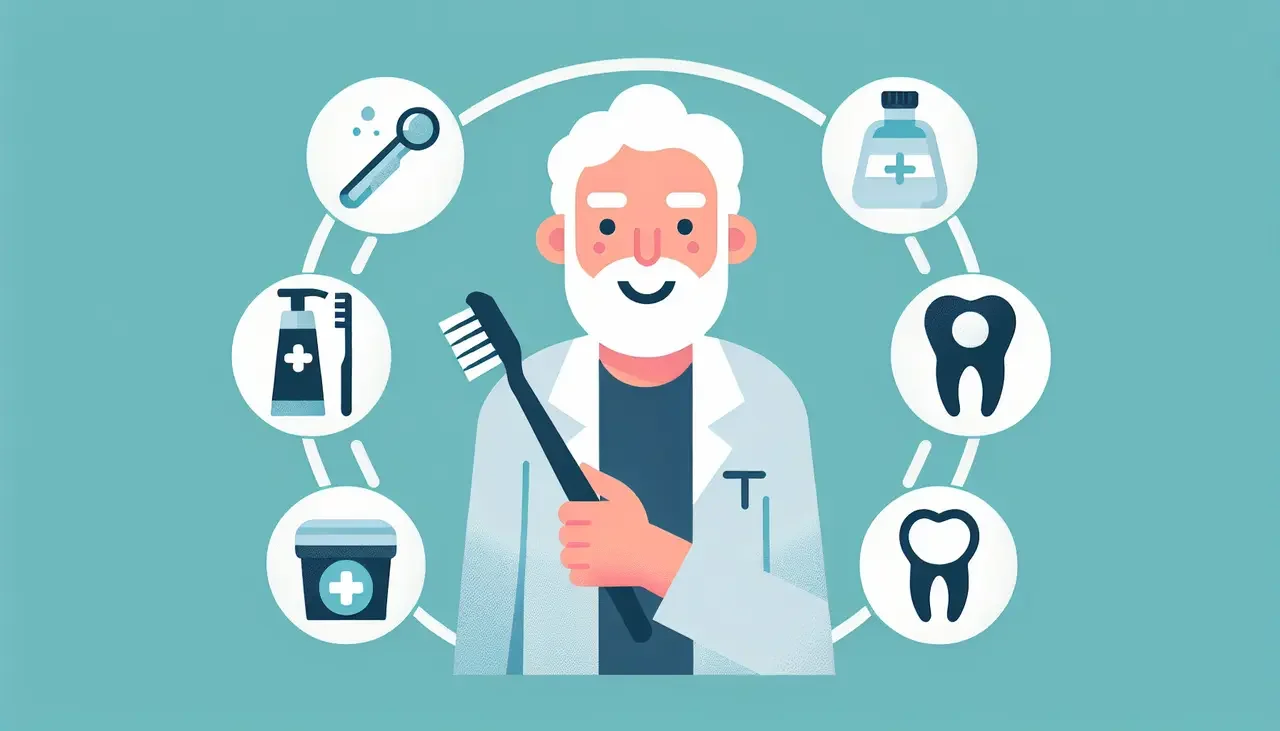7 Essential Tips for Geriatric Dentistry: Keeping Older Smiles Healthy
As we age, maintaining oral health becomes increasingly important. Geriatric dentistry focuses on the unique dental needs of older adults, ensuring that their smiles remain healthy and vibrant. In this article, we'll explore essential tips to help older adults care for their teeth and gums, ensuring they can smile with confidence throughout their golden years.
1. Understanding the Impact of Aging on Oral Health
As we grow older, our mouths undergo various changes that can affect our oral health. Gums may recede, teeth can become more susceptible to decay, and dry mouth can become more prevalent. Understanding these changes is the first step in adapting our dental care to suit aging needs.
One of the most noticeable changes is the receding gum line, which can expose the roots of the teeth, making them more vulnerable to decay and sensitivity. This can be a concern for older adults as it affects the stability and health of their teeth over time. Additionally, weakened tooth enamel can increase the likelihood of cavities, necessitating a proactive approach to dental care. By recognizing these signs early, you can take steps to mitigate their effects on your overall oral health.
Another issue is the decrease in saliva production, leading to dry mouth, which can severely affect oral health by causing a more acidic environment. Saliva acts as a natural defense against bacteria and helps in the remineralization of teeth. To combat dry mouth, it's crucial to stay hydrated and possibly seek advice from your dentist about saliva substitutes and additional treatments to enhance your oral defense.
2. The Importance of Regular Dental Check-Ups
Routine dental visits are crucial for older adults. Dentists can detect issues early, provide professional cleanings, and offer personalized advice to help maintain oral health. Regular check-ups are essential for preventing serious dental problems down the road.
During these visits, dentists also have the opportunity to inspect your dentures and oral appliances for proper fit and function, ensuring they do not cause any discomfort or oral issues. They might also suggest adjustments or alternatives to enhance your comfort and health. Therefore, keeping up with regular dental check-ups is not just about addressing existing problems—it is also about preventing them in the first place.
3. Proper Brushing and Flossing Techniques
Using the right brushing and flossing techniques is vital for older adults. Gentle brushing with a soft-bristled brush and careful flossing can help prevent gum disease and cavities. It's important to clean all surfaces of the teeth thoroughly every day.
For older adults, investing in an electric toothbrush can make brushing more effective and easier, especially for those with arthritis or reduced dexterity. These toothbrushes often have timers to ensure the correct brushing duration and are easier to handle. Coupled with interproximal brushes or water flossers, they can significantly enhance your oral hygiene routine and keep your gums healthier.
4. Managing Dry Mouth Symptoms
Dry mouth is common in older adults and can contribute to tooth decay and gum disease. Staying hydrated, using saliva substitutes, and avoiding tobacco and alcohol can help alleviate dry mouth symptoms and protect oral health.
Simple lifestyle changes can make a big difference. For instance, chewing sugar-free gum or sucking on sugarless candies can help stimulate saliva production. Incorporating a humidifier in your home, particularly while you sleep, can also help manage the dryness of your mouth and nasal passages, leading to more comfortable and healthier waking hours.
Furthermore, you can consult with your dentist about prescription medications or specially formulated mouthwashes designed to address and manage dry mouth effectively. These products can be part of a comprehensive approach to maintaining a comfortable, healthy, and hydrated oral environment.
5. Adapting Diet for Optimal Oral Health
A balanced diet that includes plenty of fruits, vegetables, and whole grains can support oral health. Limiting sugary snacks and drinks helps prevent cavities, while plenty of water aids in maintaining a healthy mouth.
Calcium-rich foods like dairy products and fortified plant milks, alongside foods rich in phosphorus such as eggs, fish, and nuts, are essential for maintaining strong teeth. These nutrients work together to replace lost minerals in your teeth, ensuring they remain resilient against decay and damage. Incorporating a variety of such foods in daily meals can significantly contribute to oral health maintenance.
6. Addressing Denture Care and Maintenance
For those with dentures, proper care is essential. Regular cleaning, proper fitting, and periodic dental evaluations ensure that dentures perform optimally and do not cause discomfort or oral health issues.
Aside from cleanliness, having a spare set of dentures is wise as it can be used in emergencies or while repairs are made. Adhering to a routine of careful daily cleaning not only ensures hygiene but also prolongs the longevity and comfort of your dentures. Combine this with regular dental check-ups to ensure a well-fitted oral appliance that supports your overall health and well-being.
7. Recognizing and Treating Gum Disease
Gum disease is a common concern among older adults. Early recognition and treatment are vital to prevent severe complications. Regular dental visits and good oral hygiene practices can help manage and reduce the risk of gum disease.
The symptoms of gum disease, such as swelling, redness, and bleeding during brushing, should never be ignored. Immediate consultation with a dentist is crucial if any of these symptoms appear. Treatments may involve deep cleaning procedures, medications, and lifestyle changes aimed at improving oral hygiene and boosting the immune system's response to gum irritants.

